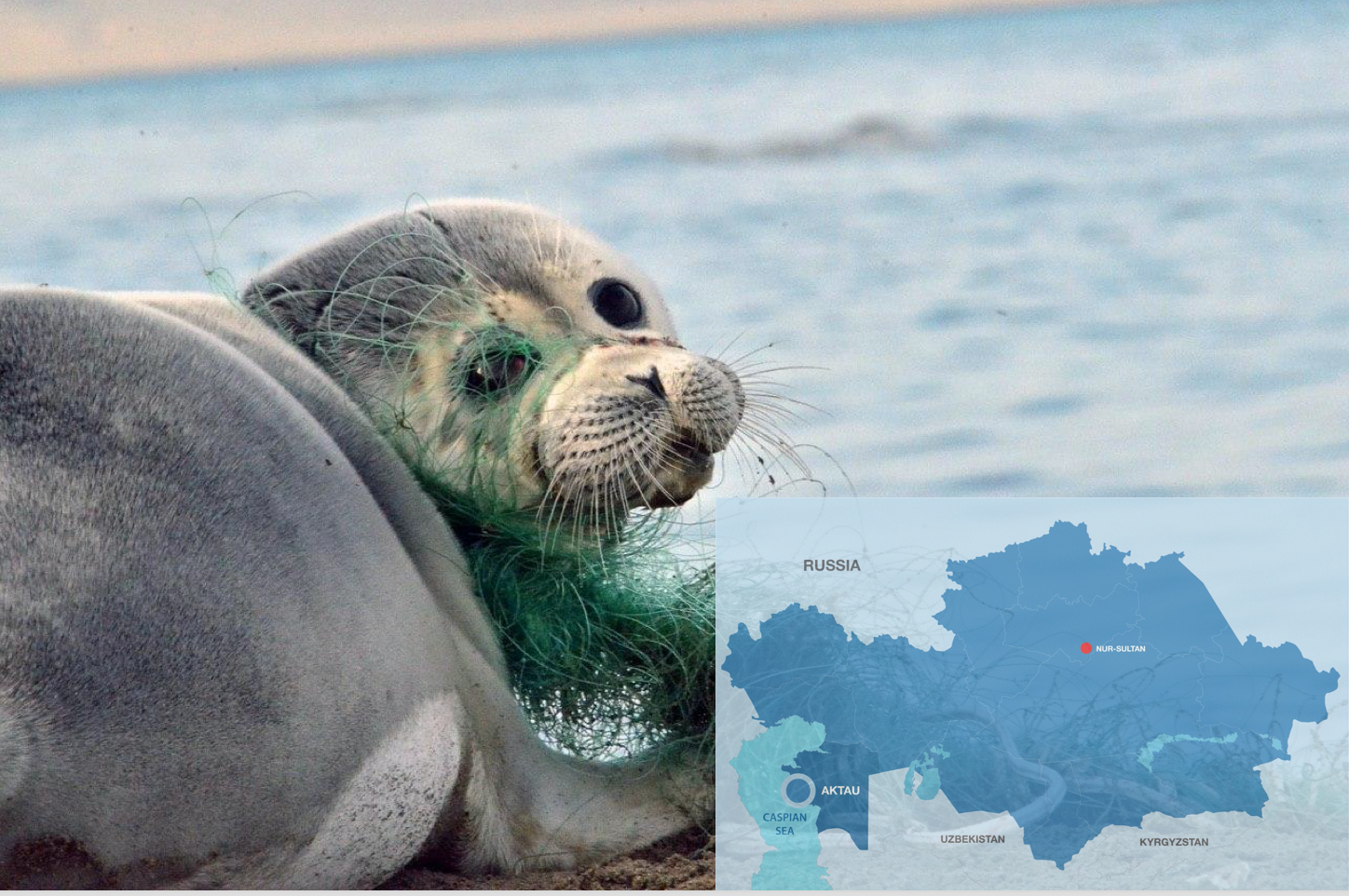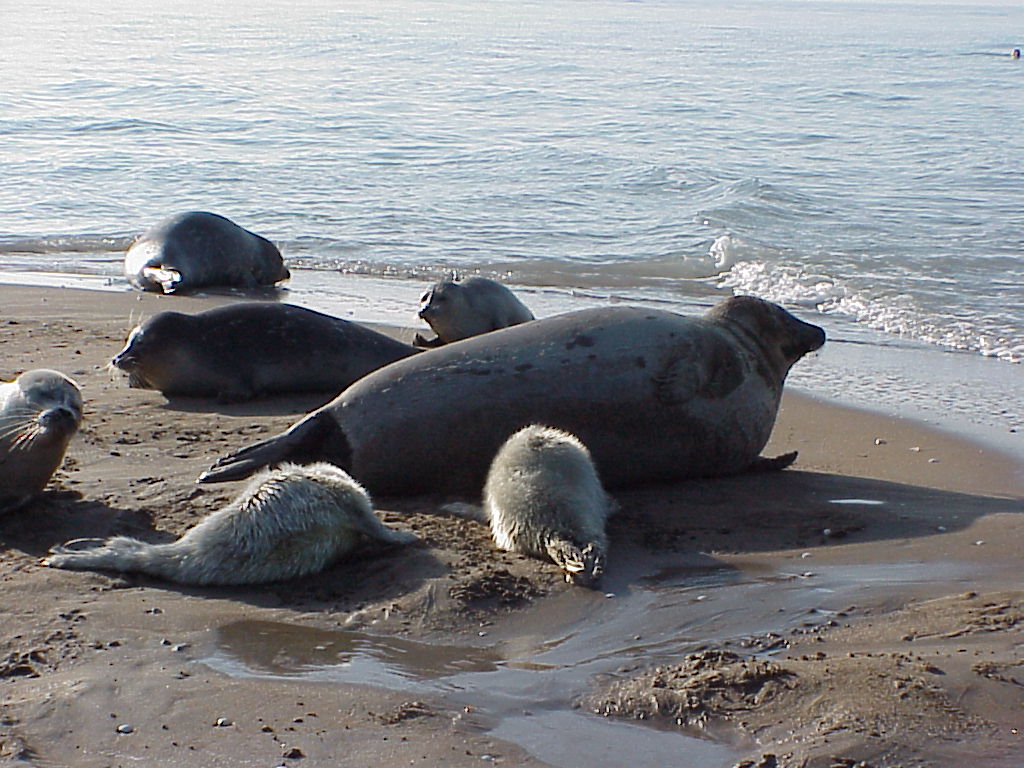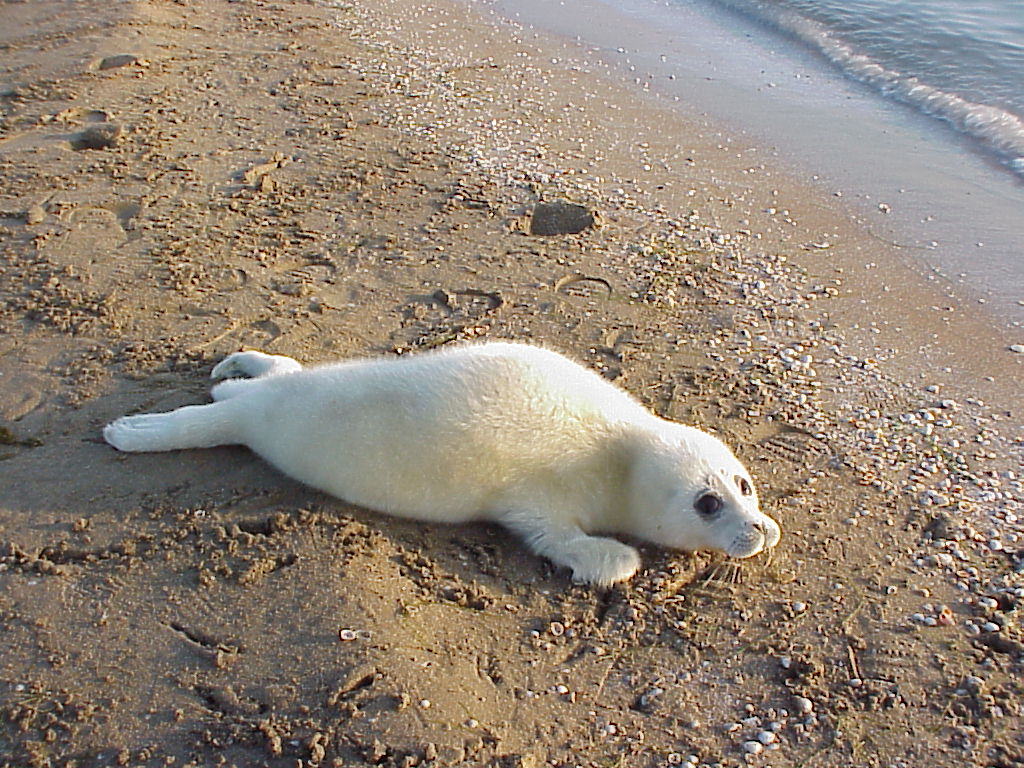NUR-SULTAN – Kazakhstan plans to include the Caspian seal in its Red Book of Endangered Species, reported the press service of the Kazakh Ministry of Ecology, Geology and Natural Resources.

Caspian seal trapped in net. Photo credit: Kazakh Ministry of Ecology, Geology and Natural Resources
The decision was made during the meeting of an interdepartmental zoological commission on fisheries and the Institute of Hydrobiology and Ecology and the Central Asian Institute of Environmental Research.
The Caspian seal is a unique marine mammal and it is found nowhere else in the world, but in the Caspian Sea bordered by Azerbaijan, Iran, Kazakhstan, Russia, and Turkmenistan, and while its population was estimated to be one million a century ago, today the situation is drastically different.
Its population has decreased by almost 90 percent and is now down to around 100,000. The ministry cites both human-induced and natural factors as factors driving their extinction, including unsustainable commercial hunting, particularly during the Soviet Union period, and toxic emissions in the sea.

Two pups (foreground) on island sandy beach Photo credit: Pavel Erokhin
Including it in the list of rare and endangered species will be an “additional measure to ensure its preservation and an important argument to create a specially protected area in the future.”
“The uniqueness of the Caspian seal biology is the seasonal habitat change. During the breeding and molting period, the majority of its population is on the ice of the Kazakh and Russian sectors of North Caspian. Before the start of spring migration, seals gather in groups off the east and northwest coast, while in the summer months they inhabit the deeper southern part of the Caspian Sea,” said the ministry’s press service.

Caspian seal underwater in Azerbaijan. Photo credit: Farid Gadirov
The International Union for the Conservation of Nature and the Red List of Threatened Species changed the status of Caspian seal from vulnerable to endangered in October 2008.
Among the latest efforts to preserve the species has been the opening of the Caspian Seal Research and Rehabilitation Center in Aktau. The center was established by Kazakhstan’s Saby Charity Foundation and the Central Asian Institute for Environmental Research, which has been partnering with French, Iranian and Russian experts to monitor and research the Caspian seal in the Kazakh sector of the Caspian Sea for four years before the center’s opening. Similar centers have been operating in Iran and Russia.
Kazakh and Russian experts also plan to cooperate in the area.
“Today, the results of scientific research on the population of the Caspian seal done by the Caspian states vary significantly. Therefore, to obtain objective data, ecologists from Kazakhstan and Russsian are planning to organize joint research based on a single methodology,” said the press service.
The Kazakh and Russian officials adopted the program for assessing the population, distribution and natural reproduction of the Caspian seal in their North Caspian waters for 2020 until 2024 at the beginning of this year.

A Caspian seal pup. Photo credit: Pavel Erokhin
